Suddenly we want to know Vladimir Putin better (and Alina Kabaeva — “reportedly the longtime partner”)
Mar 10th, 2022 | By Randall White | Category: Countries of the WorldONTARIO TONITE. RANDALL WHITE, FERNWOOD PARK, TORONTO, 10 MARCH 2022. One thing Russia’s invasion of Ukraine has done for me personally is increase my heretofore extremely slight interest in the question of just who Vladimir Putin is.
As an international politics fan I have vaguely known that Putin was born and raised in what is now called St. Petersburg (Leningrad under the old Soviet Union, and from his birth in 1952 until 1991).
As further explained by Wikipedia : He “studied law at Leningrad State University, graduating in 1975.”
Then in the old Soviet Union he “worked as a KGB foreign intelligence officer for 16 years, rising to the rank of lieutenant colonel” (in the main Soviet security agency).
Putin’s career in the new Russia

The old Union of Soviet Socialist Republics (USSR) rather peacefully dissolved itself into the 12 independent republics of Armenia, Azerbaijan, Belarus, Georgia, Kazakhstan, Kyrgyzstan, Moldova, Russia, Tajikistan, Turkmenistan, Ukraine, and Uzbekistan, on December 25, 1991. And Vladimir Putin resigned from the KGB. He moved back to his renamed hometown of St. Petersburg, where he became involved in the political career of newly elected Mayor Anatoly Sobchak — described on the HISTORY.COM site as “a liberal politician.”
Returning to the words of Wikipedia, after rising to the role of Deputy Mayor of St. Petersburg Vladimir Putin “moved to Moscow in 1996 to join the administration of president Boris Yeltsin [in the Russian independent republic — by far the largest and most populous part of the old Soviet Union]. He briefly served as director of the Federal Security Service (FSB) and secretary of the Security Council, before being appointed as prime minister in August 1999. After the resignation of Yeltsin, Putin became acting president, and less than four months later was elected outright to his first term as president and was reelected in 2004.”
Putin’s English-language Wikipedia biography then brings his increasingly successful and assertive political career up to date : “As he was then constitutionally limited to two consecutive terms as president, Putin served as prime minister again from 2008 to 2012 under [president] Dmitry Medvedev, and returned to the presidency in 2012 in an election marred by allegations of fraud and protests; he was reelected again in 2018. In April 2021, following a referendum, he signed into law constitutional amendments including one that would allow him to run for reelection twice more, potentially extending his presidency to 2036.”
All this I think I was vaguely aware of before the Russian invasion of Ukraine in early 2022. I also recall having drinks a number of years ago with a friend and colleague who delivered a very harsh tirade against Vladimir Putin. (It might well be greeted by vast applause in the same establishment today.) And only several years ago I spent a few days in St. Petersburg myself — and heard how the former Deputy Mayor of the old imperial capital and now President of Mother Russia still has a soft spot for his home town. (And heard as well that he is popular there and elsewhere because many Russians still like the kind of strong leader he portrays.)
Alina Kabaeva : “reportedly the longtime partner of Russian president Vladimir Putin”
I have never before been all that interested in any further details about the life of Vladimir Putin. What he is doing now in Ukraine, however, has finally piqued my curiosity.
What kind of man would think that the (as our TVs testify nightly) wantonly destructive Russian military exercise in Ukraine is any kind of human achievement? (And, as the iconic Western political realist Niccolò Machiavelli himself might advise, how can such action lead to anything with any longer political future?)
In the broad media environment that recurrently warps us all nowadays— one way or another — my fresh curiosity about Vladimir Putin (beyond his sitting at long tables on TV) seems to have been at least initially channelled in one particular direction. As in these chronologically arranged news headlines, starting in the middle of March 2015 and ending early March 2022 :
— “Swiss media reveals more about Putin’s girlfriend, baby,” March 15, 2015
— “Putin’s ex-gymnast ‘girlfriend’ vanishes after rumors that she had twin boys with Russian president … 37-year-old Alina Kabaeva, an Olympic gold medalist, was reportedly two months pregnant when she was last seen in 2018,” October 8, 2020
— “‘KREMLIN’S FIRST MISTRESS’ … Mystery of Vladmir Putin’s vanishing Olympic gymnast ‘mistress’ Alina Kabaeva after ‘having his kids,’” October 14, 2020
— “Former Olympic champion believed to be Putin’s ‘secret first lady’ appears first time in two years to blast Tokyo judges who did not award Russian gymnast a gold medal … Alina Kabaeva has dramatically reappeared after more than two-and-a-half years … The 38-year-old appeared on TV to criticise judges at the Tokyo Olympics … Herself a former champion, Kabaeva said Russian star Dina Averina was ‘perfect’ … She argued that judges had deprived Averina of a gold in rhythmic gymnastics” (and note she also alludes to judges from “NATO countries” as part of the problem), August 10, 2021
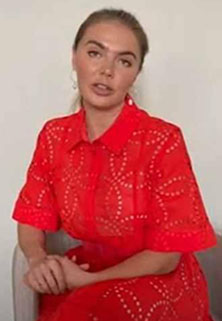
— “41 Hottest Pictures of Alina Kabaeva,” August 20, 2021
— “Who is Alina Kabaeva, Vladimir Putin’s girlfriend? … The Russian leader likes to keep his private life hidden, “ March 2, 2022
My own initial conclusion is that Alina Kabaeva is an accomplished lady in her own right, very loyal to Putin. One start to learning more about her is her Wikipedia biography, where she is described as “reportedly the longtime partner of Russian president Vladimir Putin.”
(And for more on Putin’s first marriage and his children from that see his Wikipedia biography.)
More political realities at the end …
Meanwhile, the most interesting thing I seem to have learned from my adventures here is actually another political point.
Today’s so-called Commonwealth of Independent States — the closest there is to some survival of the old Soviet Union — includes only nine of the original 12 independent republics into which the Soviet Union dissolved on December 25, 1991.
There are various complexities to this subject, which can be explored further (for a start) in the Wikpedia article on “Commonwealth of Independent States.” But broadly the three of the 12 republics not currently a formal part of the CIS are Georgia, Turkmenistan, and (of course) Ukraine. This probably has something to do with Russia’s invasion of Ukraine, now in motion.
(And finally, from a particular Canadian point of view, see the recent Foreign Policy magazine note on “How Russia’s Future with NATO Will Impact the Arctic … Three critical ways the crisis in Ukraine will determine the region’s future.”)
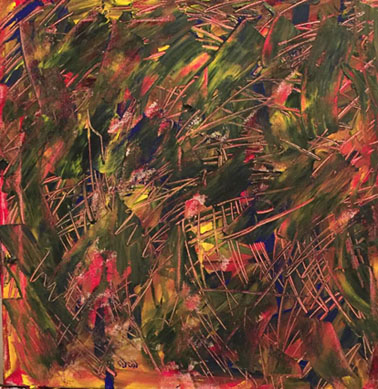
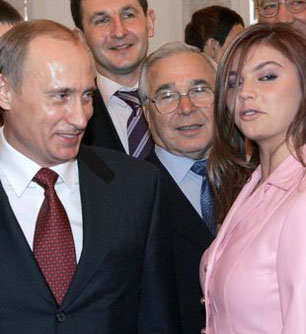
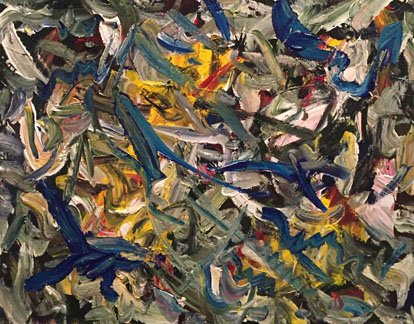
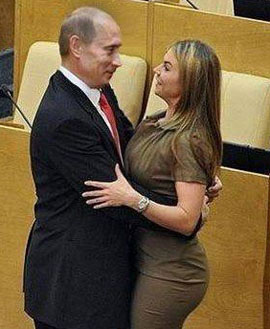
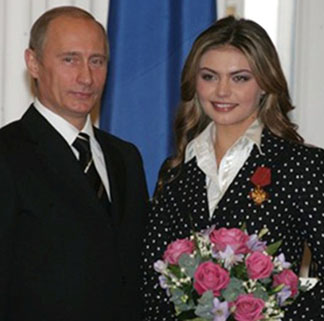


Interesting article, with details of a variety of aspects of Putin that are not usually in our purview. I had glanced as his Wiki page, and noted an unusual description under the ‘children’ category: “At least two”. I’d never seen that careful description of paternity in Wikipedia. The editors are clearly being very careful.
Hard to think of much else these days. I honestly had hoped that the potential use of nuclear weapons if a war broke out again would have led to the cessation of such brutal use of power. Chilling to hear that taking control of Chernobyl was accomplished in the first week.
Your attention to his romantic pairings also reminds me of a famous comment attributed to Henry Kissinger “Power is the best aphrodisiac”. Both not possessing traditional physical qualities that would tend to attract women. Here’s hoping he loses power soon, and definitively.